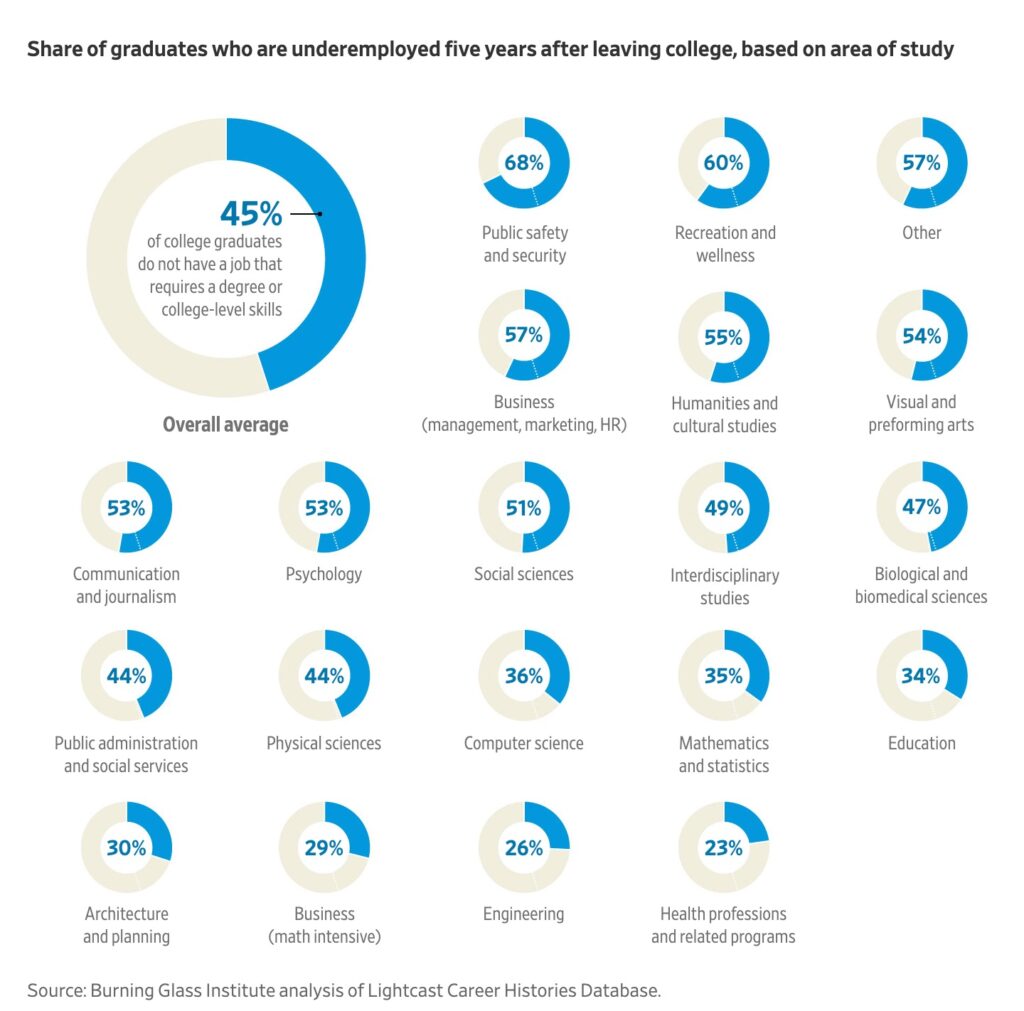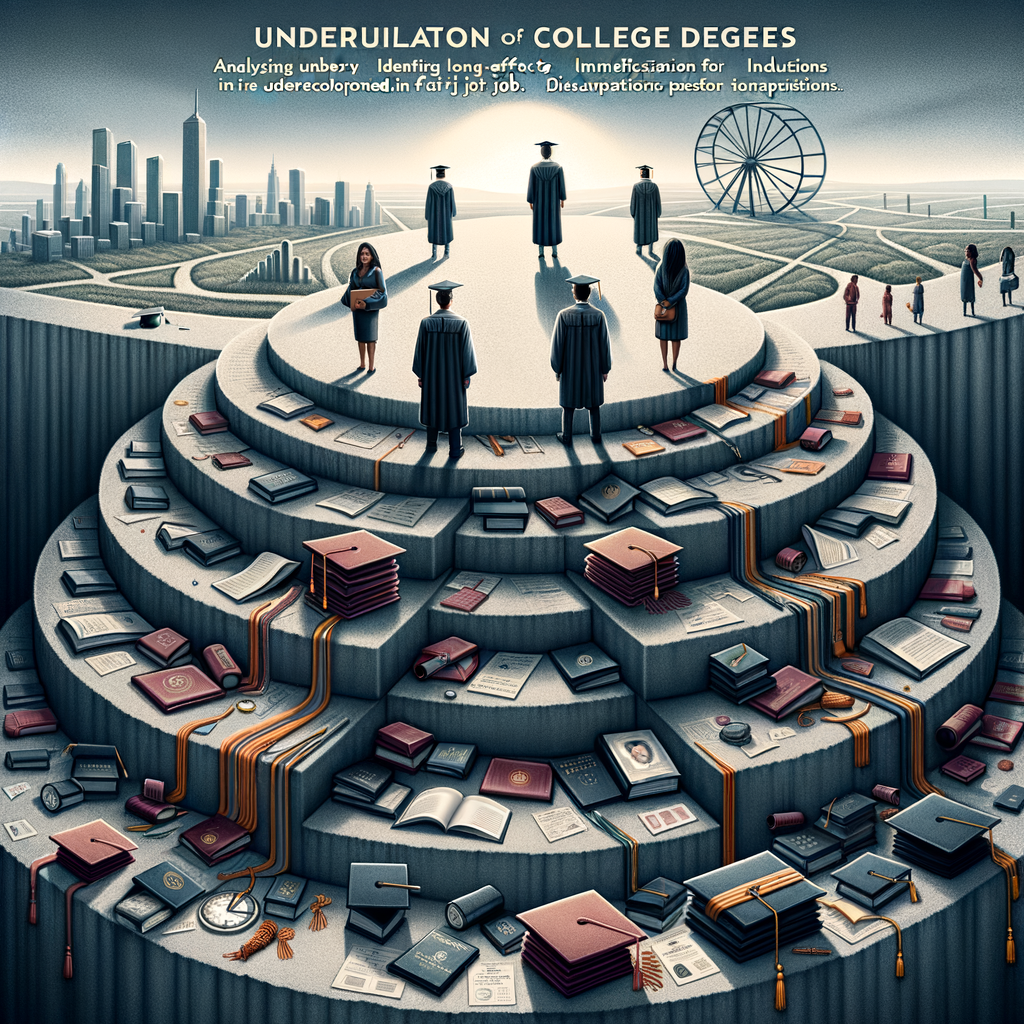Paul’s Perspective:
This piece drives home a pressing issue in the modern workforce landscape: the mismatch between educational qualifications and job requirements. If left unchecked, the underutilization of skills may lead to a broader questioning of higher education’s ROI for today’s students and tomorrow’s leaders, which underscores the importance of aligning academic pursuits with market demands.
Key Points in Article:
- A study reveals 43% of graduates are underemployed in their first job.
- Underemployment can persist five years post-graduation.
- Overqualification affects lifetime earnings and job satisfaction.
- The debate intensifies on practicality vs. prestige in higher education.
- Industries with higher underemployment rates are identified.
Strategic Actions:
- Analyze the prevalence of underemployment among college graduates.
- Identify the long-term effects of underemployment on career trajectory.
- Examine which industries are most impacted by graduate underemployment.
- Discuss the implications for educational institutions and curriculum development.
- Evaluate potential solutions to reduce the talent surplus and improve employment outcomes.
Dive deeper > Full Story:

The Bottom Line:
- A significant number of college graduates are employed in positions that don’t require a degree.
- This underemployment trend creates a talent surplus, wasting educational investment and raising questions about the value of a college education.
Ready to Explore More?
If you’re navigating the complexities of talent optimization or reassessing educational strategies for your team, our group is equipped to assist. We take a collaborative approach to help you make informed decisions that align with industry trends.


